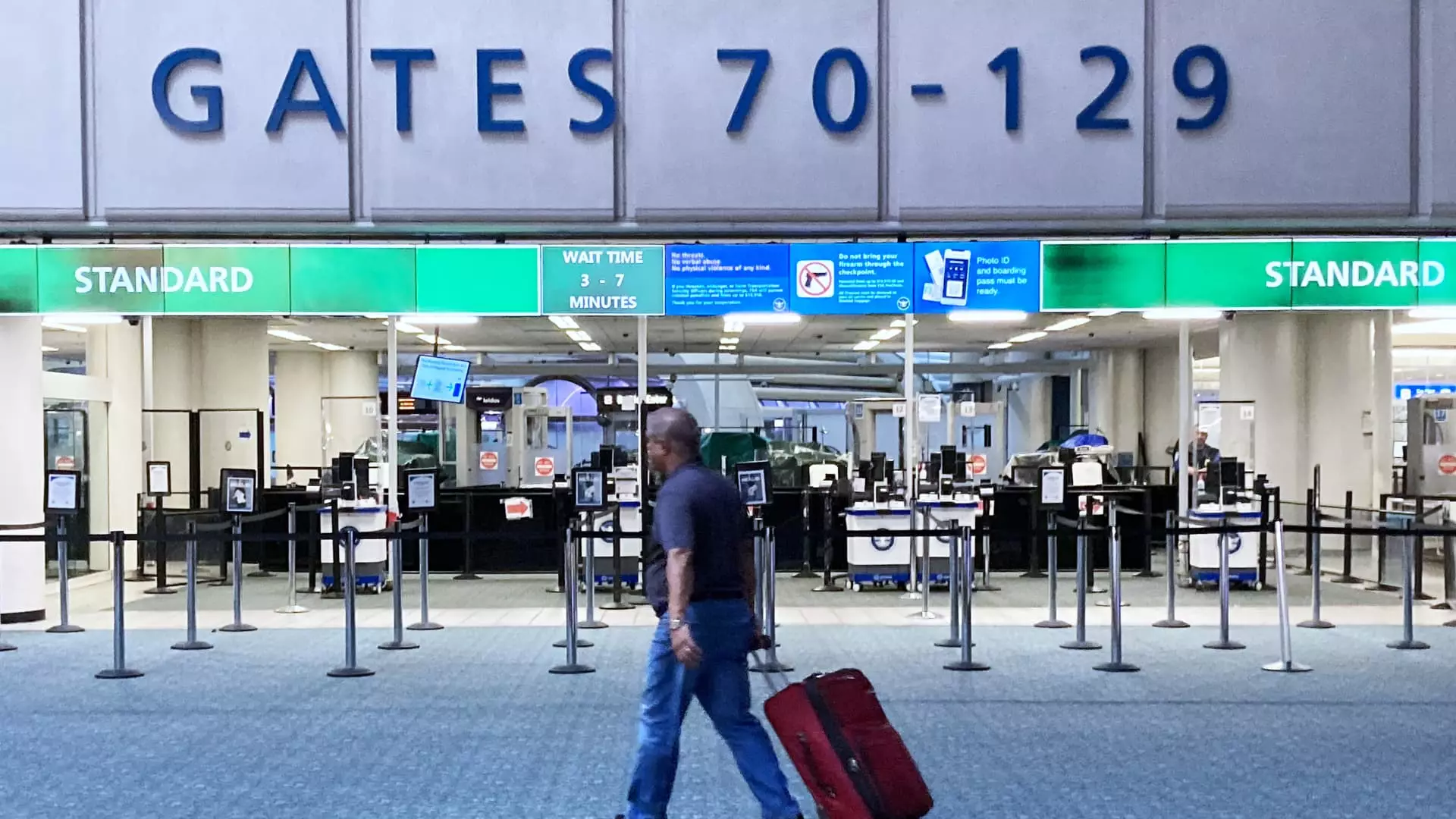As the end of the year approaches, a government shutdown threatens to overshadow what is typically a bustling holiday travel season in the United States. With lawmakers failing to reach an agreement, tensions have escalated, culminating in the rejection of a short-term funding bill that had the backing of President-elect Donald Trump. This political stalemate could lead to a shutdown commencing at 12:01 a.m. ET on Saturday, unveiling a host of potential disruptions for millions of travelers and countless federal employees.
An imminent government shutdown would have dire implications for an array of federal services and personnel. Estimates suggest that the U.S. travel industry could suffer losses of approximately $1 billion per week, significantly impacting airlines, hotels, and other sectors that rely heavily on holiday travel. The U.S. Travel Association, which advocates for various travel-related companies, has voiced concerns about the unavoidable chaos that could ensue. “It’s hard to see how anyone in Congress wins if they force TSA workers, air traffic controllers, and other essential employees to work without pay during one of the busiest travel periods of the year,” remarked Geoff Freeman, president of the organization, underlining the absurdity and consequences of such a decision.
However, even with a government shutdown on the horizon, commercial airlines have confirmed operations will continue, albeit with potential challenges. The airline industry anticipates what could be the busiest year-end holiday season on record, predicting that the Transportation Security Administration (TSA) will screen over 40 million travelers from now until January 2. With United Airlines projecting to fly nearly 10 million passengers between December 19 and January 6, the stakes for timely air travel have never been more crucial.
Despite the complications posed by a possible shutdown, essential personnel such as the approximately 14,000 air traffic controllers and nearly 60,000 TSA agents are expected to remain on the job. However, the distressing reality is that these crucial staff members would be working without pay—a risky situation that could lead to significant operational strain. David Pekoske, the TSA Administrator, indicated in a recent statement on social media that while measures have been taken to prepare for high traveler volumes, a prolonged shutdown could result in longer wait times and inefficiencies at airports.
Historically, the last government shutdown, which extended from late 2018 to early 2019, serves as a pertinent reminder of the chaos that can unfold under similar circumstances. That shutdown resulted in the longest funding lapse in U.S. history, significantly complicating air traffic and leading to widespread frustration among travelers. Callouts from air traffic controllers hampered the already congested airspace along the East Coast, highlighting the fragility of operational structures during times of financial uncertainty.
Compounding the uncertainties of air travel during a potential government shutdown, the Federal Aviation Administration (FAA) currently lacks a permanent administrator following the announcement of Mike Whitaker’s resignation, which takes effect January 20—the very day Trump will assume office. This gap in leadership raises pressing questions about the future of air traffic control modernization and the recruitment of additional controllers, both of which Delta Air Lines CEO Ed Bastian has emphasized should be the new administrator’s priorities.
As travelers gear up for one of the busiest seasons of the year, the juxtaposition of holiday cheer against the backdrop of government dysfunction paints a concerning picture. What should be a time of joy and family gathering is at risk of being overshadowed by economic ramifications and logistical nightmares stemming from political gridlock. The efficacy of essential employees is paramount in this widespread conundrum, but whether safety protocols and travel efficiency can be maintained amid these pressures remains to be seen.
Should lawmakers fail to come together and avert a shutdown, the ramifications could stretch far beyond the political realm, potentially plunging the holiday travel experience into disarray. The situation underscores the critical need for governance that prioritizes American livelihoods, particularly during crucial periods that define our national unity and shared experiences. The clock is ticking, and as history has shown, the consequences of inaction can reverberate long after the negotiations conclude.

